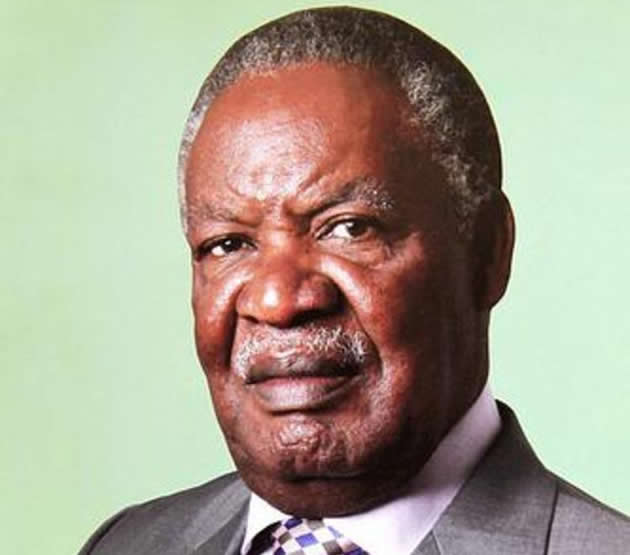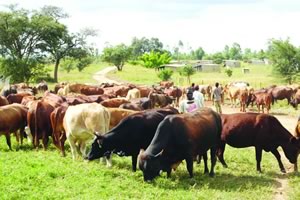Zambia: What next?

Charles Mwewa Correspondent
SOME decisions are made, others ought to be made. For Zambia, this is where we were in 2011, and where we are now. But it is not simply in the choice of the younger of the two seniors or even the lesser of the two evils — Michael Sata or Rupiah Banda — as it was in 2011; now it might be even more.
For one, Rupiah Banda had ruled Zambia, albeit, for a short while, for at least three years. Michael Sata had proven he was formidable in the prior failed presidential bids. In some elections, he had come very close.
When Sata finally won the September 23rd, 2011 presidential elections, the nation celebrated. Some compared it to 1964 when Zambia broke free from British imperial dominance. One can say that since 1964, Zambia has had only three substantive presidents in Kenneth Kaunda, Frederick Chiluba and Michael Sata.
Zambia has had also two adaptable presidents — one who was imposed by political engineering, Levy Mwanawasa (and went on to fashion a character of his own), and another president who took advantage of the vacancy created by the death of Mwanawasa, Rupiah Banda.
These last two presidents could be said to be presidents by expediency.
On October 28th, 2014, the incumbent president, Sata, died in England. His vice-president, Guy Scott, became the acting president. Pursuant to the Zambian constitution, a presidential by-election must be held within 90 days to choose a president, essentially to occupy the vacancy created by the untimely demise of President Sata. It is on the potential PF candidates for this replacement presidency where the focus of this brief article now lies.
The Players
Since acting President Scott cannot run, the following are likely candidates: Alexander Chikwanda, Edgar Lungu, Wynter Kabimba or Mulenga Sata. If Chikwanda is fielded as presidential candidate, it might be of necessity to have Lungu as running mate. This will guarantee a Bemba as well as a Nyanja vote. Kabimba might run, but might be a liability in terms of winning the substantive presidency. However, the Chikwanda and Lungu duet might pose serious threats to the positional and philosophical interests of Scott, and of the media entities Chikwanda has had fracas with.
Of the duo, the PF would opt for Chikwanda in order to win the electoral vote, though not the popular vote. Lungu could win the popular vote. Scott would prefer Mulenga as president, if not for personal ties to Sata, but for protection against lost glory. The choice of Mulenga might polarize the PF party and risk the presidency.
Governance by Compromises
Unless the PF imports a presidential candidate from outside its core ranks, the aforementioned potential candidates can only govern the PF with informed compromises. Scott’s portfolio in both PF and government must be guaranteed.
If Scott is enticed to a senior governmental ministry, such as Defence or Finance (replacing Chikwanda) it might satiate the various aggregates in the PF and leverage a semblance of peace and order in the interim. Kabimba and Mulenga, though not factors in the national governance matrix, are, in themselves, very powerful individuals; they know too much about the PF. And whoever becomes PF presidential candidate must guarantee their allegiance.
Power-Players
Chikwanda and Lungu are the power-players; they can determine not only the result of the presidential by-election but of subsequent elections as well. For strategic reasons, as indicated above, Chikwanda must run as president flanked by Lungu.
This might win the PF both the electoral and popular votes. Chikwanda, more than Lungu, must promise all the elements inside the PF and outside, that he would not use the PF presidency as a whip against those who opposed him.
He must not be vindictive against certain media interest, too. But Zambians cannot rule out a “surprise” and new candidate — that could make PF politics very interesting! This may be good for the PF, but will it be for Zambia? Adama Gaye indicts, “(Zambian needs) a younger politician who has the physical capacity to run the country and who understands the modern issues.”
Gaye could be very near to the truth. Having lost two presidents in office in a space of six years, the Zambian electorate cannot overlook this caveat. Zambians must be comforted that President Sata meant well for the country and must be mourned with great respect and reflection. And the best way to do so is to choose a unifier in PF and not a divisive candidate. The continued peace of Zambia depends on it.
Author of Zambia: Struggles of My People; and King Cobra Has Struck: Letter to President Michael C. Sata. Charles is also professor of legal studies in Canada.










Comments